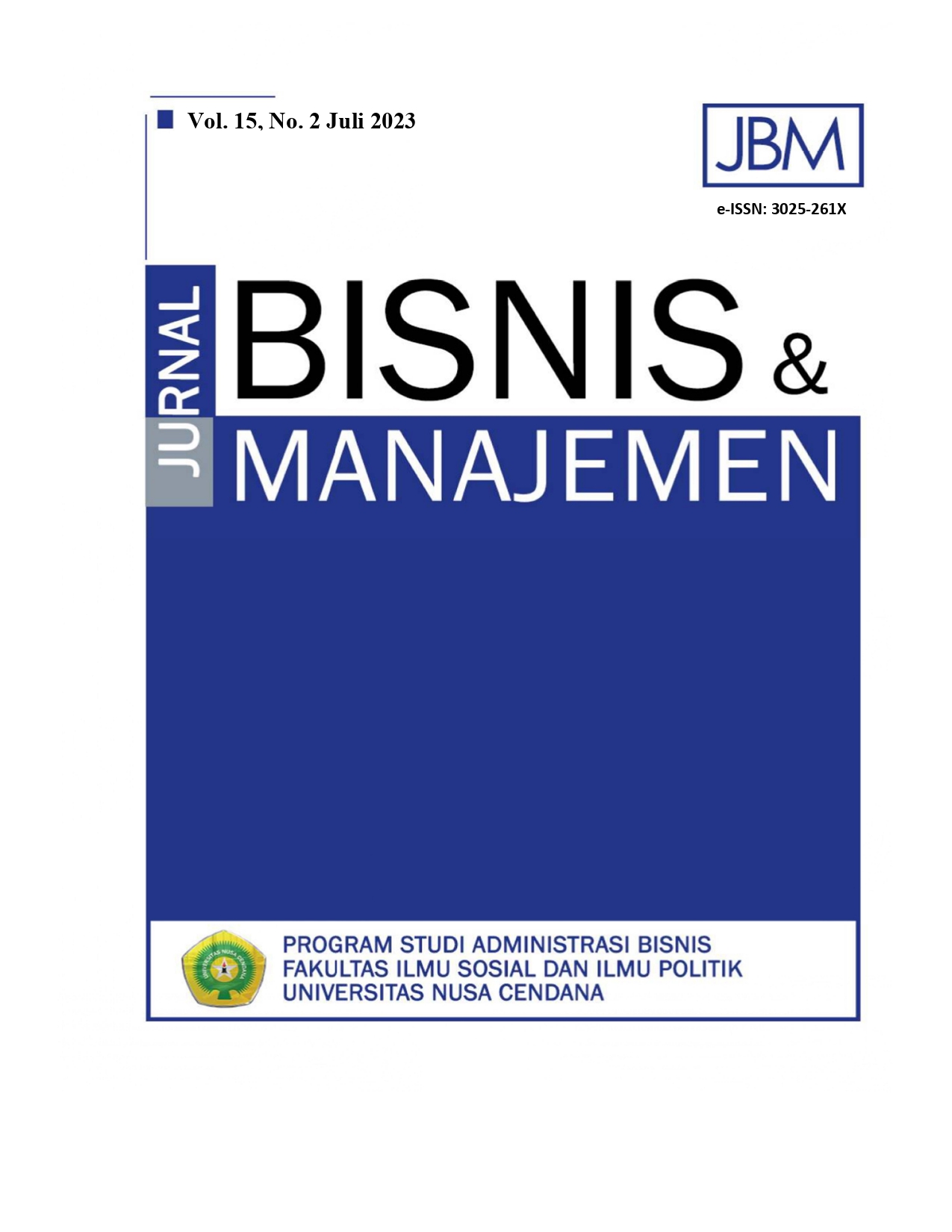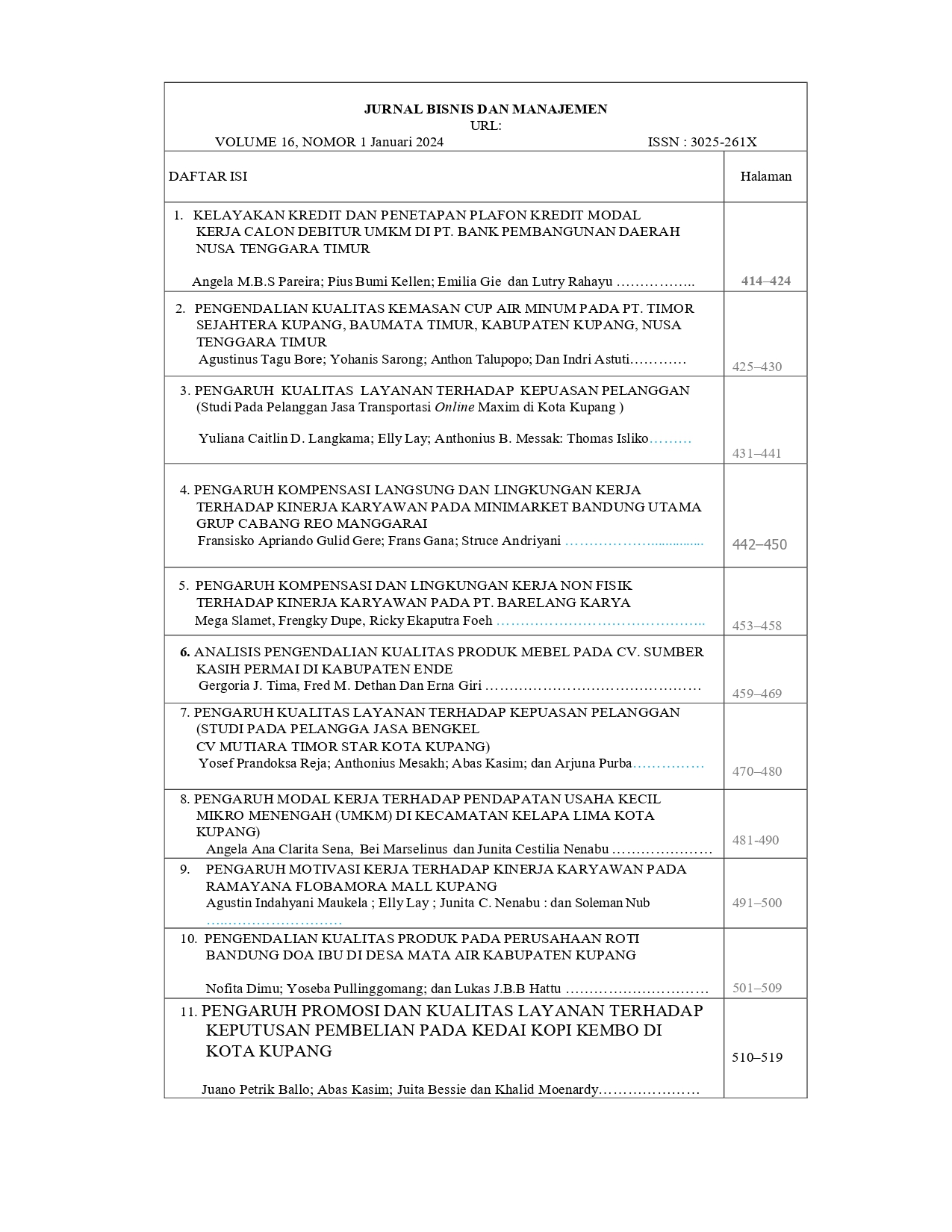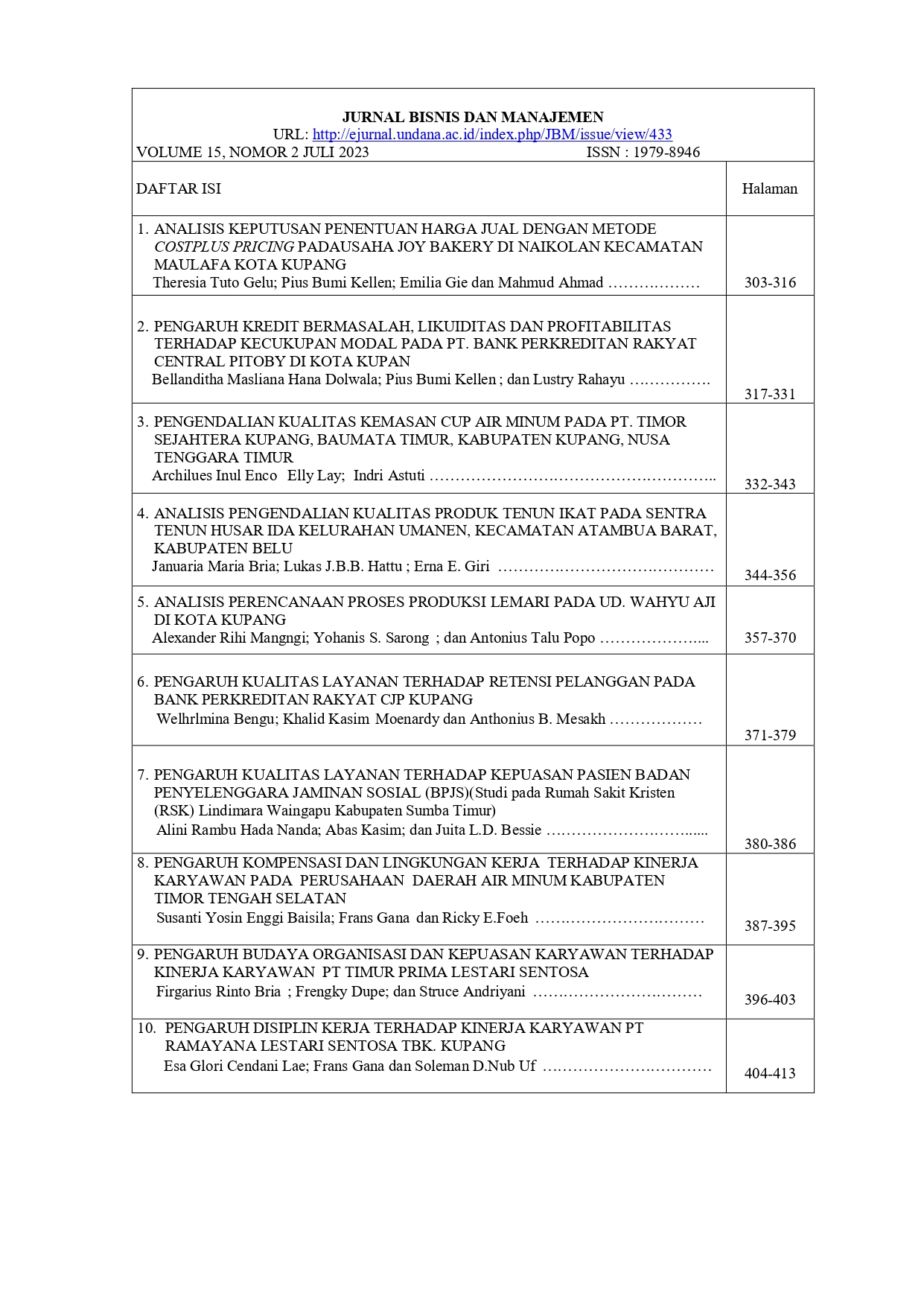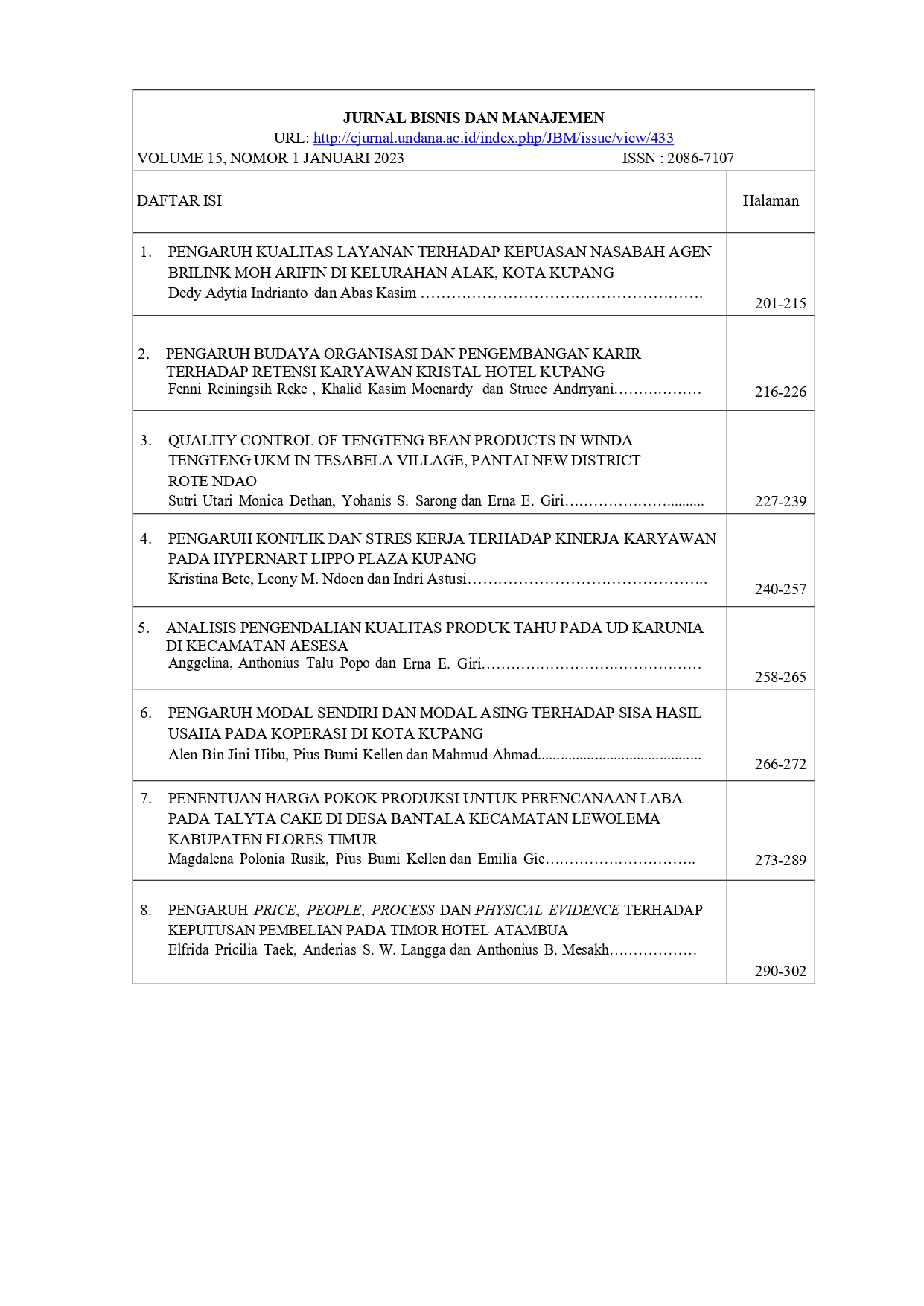PENGARUH KUALITAS LAYANAN TERHADAP RETENSI PELANGGAN PADA BANK PERKREDITAN RAKYAT CJP KUPANG
Abstract
Welhelmina Bengu, The Influence of Service Quality on Customer Retention at CJP Kupang People's Credit Bank' (under the guidance of Dr. Khalid Kasim Moenardy, M.Si as supervisor I and Drs.Anthonius B Mesakh, M.Si as supervisor II. This research aims ( 1) Knowing and explaining BPR CJP customers' perceptions of the variables determining service quality (reliability, responsiveness, guarantee, empathy, and tangibility) and customer reten tion. (2) Testing and explaining the influence of reliability on customer retention at BPR CJP Kupang. (3) ) Test and explain the effect of responsiveness on customer retention at BPR CJP Kupang. (4) Test the effect of guaran tees on customer retention at BPR CJP Kupang. (5) Test the effect of empathy on customer retention at BPR CJP Kupang. (6) Test the effect of tangPibility on customer retention.(7) Testing the influence of reliability, respon siveness, guarantee, empathy and tangibility simultaneously on customer retention.To achieve this goal, a sample of 60 respondents was selected at BPR CJP Kupang. Data collection was carried out using questionnaires, inter views, literature and documentation. The data analysis technique used is descriptive analysis and multiple linear regression using SPSS 25. The results of the descriptive analysis show that Reliability is in the high category (4.02), Responsiveness is in the high category (3.82), Guarantee is in the (3.87), Emapti is in the (4.02) category, Physical Evidence is in the (4.08) category and Customer Retention is in the high category (3.93). The results of the regression analysis show that the results of the t test for the Reliability variable (X1) result in tcount (2,052) > ttable (2,000). Based on the results of the t test, the first hypothesis states that reliability partially has a significant influence on customer retention. The results of the t test for the responsiveness variable (X2) resulted in tcount (2,363) > ttable (2,000). Based on the results of the t test, the second hypothesis states that responsiveness partially has a significant effect on customer retention. The results of the t test for the collateral variable (X3) result in tcount (3,189) > ttable (2,000). Based on the results of the t test, the third hypothesis states that guarantees par tially have a significant effect on customer retention. The results of the t test for the Empathy variable (X4) were thi-tung (2.031) > ttable (2.000). Based on the results of the t test, the fourth hypothesis states that empathy par tially has a significant effect on customer retention. The results of the t test for the Physical Evidence variable (X5) result in tcount (2,276) > ttable (2,000). Based on the results of the t test, the fifth hypothesis states that Physical Evidence partially has a significant effect on customer retention. The results of the F test show the value of Fcount (32,394) > Ftable of (3.168). Thus, the sixth hypothesis in this research states that the variables of reliability, responsiveness, assurance, empathy and physical evidence simultaneously have a significant effect on customer retention. Based on the adjusted R squer, it shows that the contribution of the variables reliability, responsiveness, assurance, empathy and physical evidence is 72.70% and the rest.

 Alini Rambu Nanda(1*)
Alini Rambu Nanda(1*)





